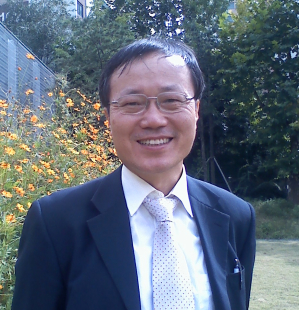
Nowadays, it is easy to find students staring down at their smartphones at the beginning of class. Such scenes make me feel uneasy just as much as when there are a lot of absent or late students. In fact, there are students who pay more attention to their phones rather than the lecture. This phenomenon makes me ponder upon the poor reading culture where students read only a few books or barely catch up with their reading materials and the youth’s limited communication culture in today’s society.
Although today the media develops in an extraordinary pace, there are many voices complaining about the lack of actual communication. It is that there is an insufficient communication between people and that people continuously crave for mutual understanding.When we read a novel we often question why we are heeding to the author’s personal story. This is the same situation in the case of using SNS, such as, Facebook and Twitter. While it is true that more and more people are able to keep contact with one another, not a few stories are monologues or are just left unnoticed by others. Unspecified individuals cannot be acknowledged as receivers. On the other hand, conversations held by one-on-one rather than with a random group of people demonstrate differences in contents and aspects in depths. For instance, when one moves to a new relationship where communication is taken in forms of texts or vocal messages after becoming fond of another person whom he or she met via Twitter, a completely new form of dialogue which is more in depth is created. Hence, what looks as a diverse and fruitful conversation does not guarantee the quality and depth of communication. Even though we talk to each other a lot, most of us do not know much about one another’s life nor do we inflict any influence on each other. Looking closely at this kind of communication which lacks a binding force and responsibility toward others, we find it to be a mere fabrication.
Furthermore, it is crucial to acknowledge the connection between people’s behaviors and the characteristics of media. For example, if reading a book is like holding time in our own hands, movies give a feeling that time is wasted or left to just flow. This is because modern people are busy using their time. The old version of story-telling in vocal forms creates unexpected results through the collaboration of subjectivity, interpretation by people and specific situations. In contrast, movies’ biggest feature is that it gives a unified pleasure; but it is concerned that in a standardized society such emotions are unable to be related to what one really desires to feel. Now many people just become dull and miserable when they think about themselves. So maybe this is the reason why people constantly consume their lives by doing certain things. Though such changes in people’s behaviors do derive from social and historical conditions, still, individual attitudes are important. There is no need to view the relationship between different forms of media as a competition. People who like reading will end up to like watching movies and furthermore, will know how to sort out good movies and books. What I really think is that the issue of the superfluous or unnecessary communication is actually the problem of the recipient themselves rather than that of the media itself.
*Professor Choi Seong-man received a Ph.D. degree in German Language and Literature from Freie University in Germany and currently teaches in the German Language and Literature at Ewha.

